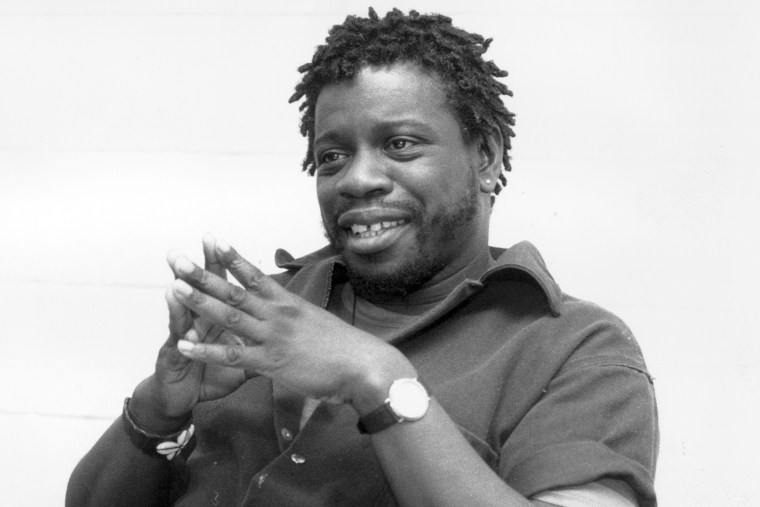Mutulu Shakur, the Black liberation activist freed from prison after a yearslong organized movement advocating for his release, has died of cancer. He was 72.
Shakur, who was rapper Tupac Shakur’s stepfather, died on Friday surrounded by family in Los Angeles, Jomo Muhammad, an organizer with the Malcolm X Grassroots Movement that advocated for Shakur’s freedom, told NBC News. The death comes six months after Shakur was released on parole from a 60-year prison sentence, during which he was diagnosed with multiple myeloma, a blood cancer that can affect the bones and kidneys.
For years, advocates, organizers and supporters urged the U.S. Parole Commission to free Shakur so he could spend his final days with his family. Muhammad said that while Shakur’s supporters are overcome with grief over his death, they are glad he was able to die outside of prison.
“Mutulu transitioned free and with his family thanks to all of us,” Muhammad said of himself and Shakur’s supporters. “That gives our hearts a bit of peace.”
Shakur was released from federal prison on Dec. 16 after more than 35 years behind bars on racketeering, robbery and robbery murder charges. His supporters ramped up efforts to free him in recent years as he endured several health issues. Shakur experienced drastic weight loss as a result of his illnesses and treatments, contracted Covid twice, and relied on IV feeding tubes on and off in the months leading up to his release, his attorney, Brad Thomson, previously said. Thomson said doctors with the Federal Bureau of Prisons gave Shakur less than six months to live in May 2022, noting that his cancer treatment had stopped working.
Authorities denied requests to release Shakur several times over the years, insisting that his crimes were too serious and his health had not deteriorated enough to warrant his release. However, in the Parole Commission’s October decision to finally grant the release, officials told Shakur, “We now find your medical condition renders you so infirm of mind and body that you are no longer physically capable of committing any Federal, State, or local crime.”
Things began to look up for Shakur after he was released and reunited with his six living children and three grandchildren. “I think being free does a lot for the spirit,” his son Mopreme Shakur told NBC News in January. “He gained like nine pounds in the first 10 days he was home.”
Shakur said of his own health then, “I am receiving excellent care in two categories — Western oncology and holistic natural therapies. I don’t take this freedom for granted.”
In his younger years, Shakur became known for his work in holistic health care for Black communities in the Bronx. He informally studied acupuncture and joined with activists in groups like the Black Panthers and the Young Lords, to take over part of Bronx’s Lincoln Hospital and run the Lincoln Detox Center, a community center that used acupuncture to treat drug dependence and provided political education that produced several community activists, according to The Washington Post.
His prison sentence stemmed from a 1988 conviction for conspiracy to violate the Racketeer Influenced and Corrupt Organizations (RICO) Act, bank robbery, armed bank robbery and bank robbery murder. He was convicted of leading a group of armed revolutionaries in a string of armed robberies in New York and Connecticut, and of helping JoAnne Chesimard, aka Assata Shakur, escape from a New Jersey prison in 1979, according to The Associated Press and Thomson.
Advocates like Muhammad have said the government targeted Shakur back then to quell his activism and his incarceration was linked to his Black liberation efforts and his work with revolutionary Black nationalist groups in the 1960s, including the Revolutionary Action Movement and the Republic of New Afrika. They’ve considered Shakur to be a “political prisoner” as a result.
The New Afrikan People’s Organization and the Malcolm X Grassroots Movement announced Shakur’s death in a statement, reflecting on his activism and principles.
“Mutulu’s life was transformative to the many people he organized, healed, mentored and inspired,” the statement reads. “Dr. Mutulu Shakur taught us that ‘people struggle for liberation because they love [the] people.’”

